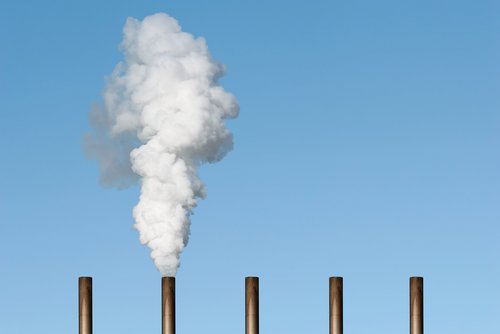The European Parliament is set to reduce the amount of available CO2 certificates more than originally foreseen. Industry shall be incentivised to invest increasingly in new, low-carbon technologies. For national governments – and in particular the German government – this should be taken as a signal to restrain itself from additional national plans.

It works!
At present the certificate for the right to emit a ton of CO2 costs approx. 5 EUR. Many climate protectionists criticise that such low prices are not sufficient to induce investments in new low-carbon technologies. For industry players it is simply less expensive to buy emission rights instead.
This is where the reform of the EU ETS comes in: starting in 2020 at the latest, the price for CO2 certificates shall increase. To achieve this, the amount of certificates is to be reduced every year by either putting them into a Market Stability Reserve and by distributing less free allowances.
To keep European industry competitive, energy intensive industry will continue to receive free certificates, albeit in a somewhat more restrictive way. The aim is to prevent carbon or investment leaking, i.e. moving their operations elsewhere, into areas without CO2 pricing.
However, emission shifting also happens within the EU. So, member states have to take action, too. In some EU countries, which incentivise and financially promote the development of renewable energies or which feature ambitious national targets for specific industry sectors, emissions are being reduced. At the same time though, other EU countries benefit from the increased amount of allowances becoming available this way and the CO2 price keeps dropping. This is not what the ETS was set up to achieve.
So, member states rather than supporting specific technologies need to allow for the system to work and do their homework: e.g. by expanding the electricity grid infrastructure as well as rolling out the necessary charging stations for electronic vehicles.
More on the topic
Is the EU Fit for 55 and Beyond?
Ursula von der Leyen was elected President of the European Commission by the European Parliament in July 2019. She assumed office in November 2019 and unveiled the European Green Deal in December 2019 (European Commission, 2023a) as a focal point of European ...
IW
Compendium 5.4: CO2 Regulation of Road Transport in Europe
With the Compendium CO2 Regulation in Europe, the IW has been providing the interested public with a comprehensive collection of data on the development of CO2 emissions from passenger car traffic in the European Union, as well as on the applicable regulatory ...
IW